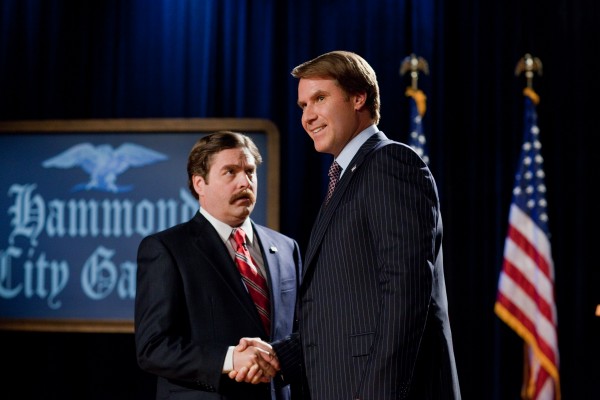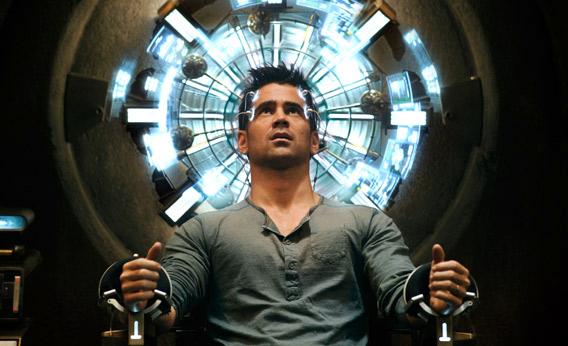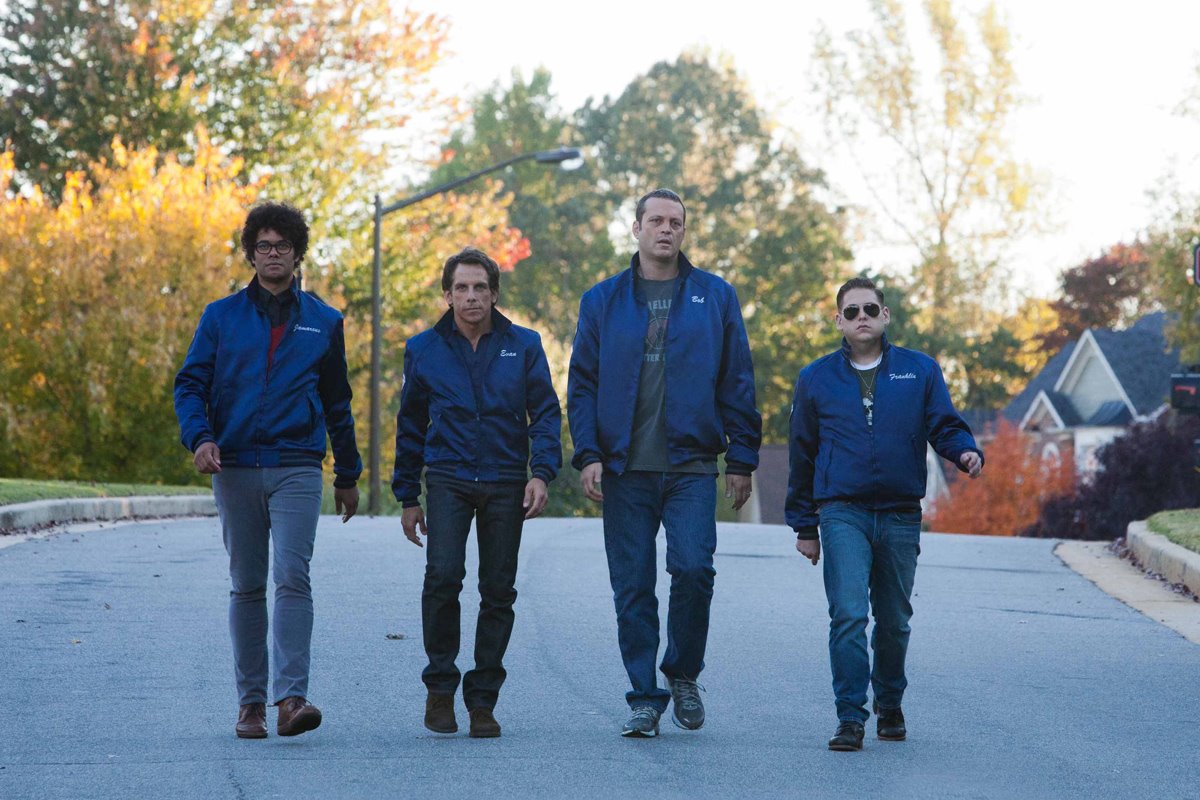What must it feel like for the hopes and dreams of millions of people to press down on your shoulders? It must be quite a strain on one’s back. I’m not talking about Batman, I’m talking about Christopher Nolan. After taking the superhero film in an entirely new direction with “Batman Begins,” Nolan offered up what some (including yours truly) consider the greatest superhero film of all-time with “The Dark Knight.” So how does part three hold up?
To state the obvious: it falls well short of the greatness of “The Dark Knight,” but “Rises” is a thrilling and satisfying conclusion to Nolan’s reimaging of The Caped Crusader.
 “Rises” revisits the familiar faces of Gotham City, eight years later. Bruce Wayne (Christian Bale) has taken up hermitage ala Howard Hughes in Wayne Manor, seeing only his faithful butler-turned-father-figure Alfred (the brilliant Michael Caine). Commissioner Gordon (Gary Oldman) is presiding over clean streets and peacetime, so long as he perpetuates the myth of the hero Harvey Dent. Lucius Fox (Morgan Freeman) controls Wayne’s estate and the board of trustees at Wayne Enterprises, but still can’t keep his hands out of applied sciences. All’s quiet on the streets of Gotham, until the new menace known as Bane arrives.
“Rises” revisits the familiar faces of Gotham City, eight years later. Bruce Wayne (Christian Bale) has taken up hermitage ala Howard Hughes in Wayne Manor, seeing only his faithful butler-turned-father-figure Alfred (the brilliant Michael Caine). Commissioner Gordon (Gary Oldman) is presiding over clean streets and peacetime, so long as he perpetuates the myth of the hero Harvey Dent. Lucius Fox (Morgan Freeman) controls Wayne’s estate and the board of trustees at Wayne Enterprises, but still can’t keep his hands out of applied sciences. All’s quiet on the streets of Gotham, until the new menace known as Bane arrives.
In the first scene of the film, we are introduced to Bane (Tom Hardy), much the way Nolan introduced The Joker in the last film. However, this scene is both less impressive and less effective than the iconic bank robbery sequence. Bane plans on tearing up Gotham, but his exact plans, motivations and means are never clear enough. Bane is one of the most glaring weaknesses of this installment. The Joker was a tough act to follow, but Hardy’s Bane too eloquently articulates his character’s thoughts and thematic place within the film. All of his lines are either Nolan’s pseudo-philosophical musings or stupid quips delivered with campy inflection. As a brooding presence, Bane poses a terrifying threat, but as a character, he significantly weakens the film.
Meanwhile, in Gotham City, Selina Kyle aka Catwoman (Anne Hathaway) gets caught up with Bane’s minions and with Bruce Wayne. Hathaway’s Catwoman strikes an excellent balance and tone. She’s a strong character, and that’s saying a lot for a Nolan film. “Rises” is over-long and over-stuffed with far too many characters and subplots, but more focus on Catwoman would have been welcome here.
We also meet Miranda Tate (the dreadful Marion Cotillard), an investor who goes to Wayne Enterprises for development on an energy initiative. Tate is horrible character. Her interactions with Wayne are utterly unbelievable, and her paper-thin underdevelopment proves problematic among the crowded ensemble.
Last, but certainly not least, Joseph Gordon-Levitt joins the cast as John Blake, a rookie officer in Gordon’s unit. Levitt is great here, and his character’s back story provides fabulous groundwork for the emotional payoff at the end of the film.
Many of the problems with “Rises” could have been avoided. Had Nolan planted some of these characters earlier in the trilogy, their arcs would have felt less rushed and more organic. Also, the first 45 minutes would not have been so chaotic and jumbled. Always inescapable in a Nolan film is incredibly heavy and unsubtle topical themes mostly dispensed through ear-piercing expository dialogue. Read however far you desire into the political timeliness of “Rises,” but allusions to Occupy Wall Street and even the French Revolution are half-baked. In other words, if you read too far into it, the message becomes troubling.
In addition, what worked so well in “The Dark Knight” feels over-extended and stretched here. Namely, I’m thinking of the gravity of the tone. The middle section of “Rises,” which is the better part of 80 minutes, bears such a heavy tone it is almost pretentious, bogged down in its own delusions of self-importance. The film gets so dark, dreary and nearly-nihilistic, that it is at times hard to watch. It plays a bit like emotional exploitation or despair pornography.
That said, “Rises” is an unflinching spectacle. As an epic, technically and dramatically, “Rises” mostly delivers. Nolan shot the film with IMAX cameras, and the result is breath-taking to behold. The returning veterans are trustworthy as ever, with Caine earning extra kudos for showing, once again, that there are few better in the business when it comes to delivering a monologue.
The last act of “Rises,” about the final 45 minutes of the film, is easily the best. In fact, this extended ending is so thrilling, so stirring, so emotionally challenging and rewarding, that is almost makes up for all of the fumbles in the previous 2 hours. I have never been, nor ever expected to be this emotionally involved in a Christopher Nolan film. I hope he adds “heart” to his bag of tricks in the future.
The film’s climax is truly a spectacle and an epic in every sense of the word. Nolan and company take no prisoners and spare no expense. This being his last Batman film, Nolan is going for broke, and the end would succeed on sheer ambition alone, if it were not so excellent.
It takes a while to digest “The Dark Knight Rises.” The film is an emotionally involving, and mind-numbing experience. I will be curious to see how opinions change over time and with repeat viewings. For me, the experience was mostly a bipolar one – waxing and waning between the surprising emotional competence and technical scope, and the clunky fumbling of characters, dialogue, exposition and plot points. Unfortunately, “Rises,” like Bane, flaunts muscle over mind. Yet, “Rises,” like its predecessors, is bolder than its peers. This is not “The Avengers,” folks, and I, for one, was glad about that. If only Nolan, like Bruce Wayne, did not prefer that everything comes in black.
3/5









